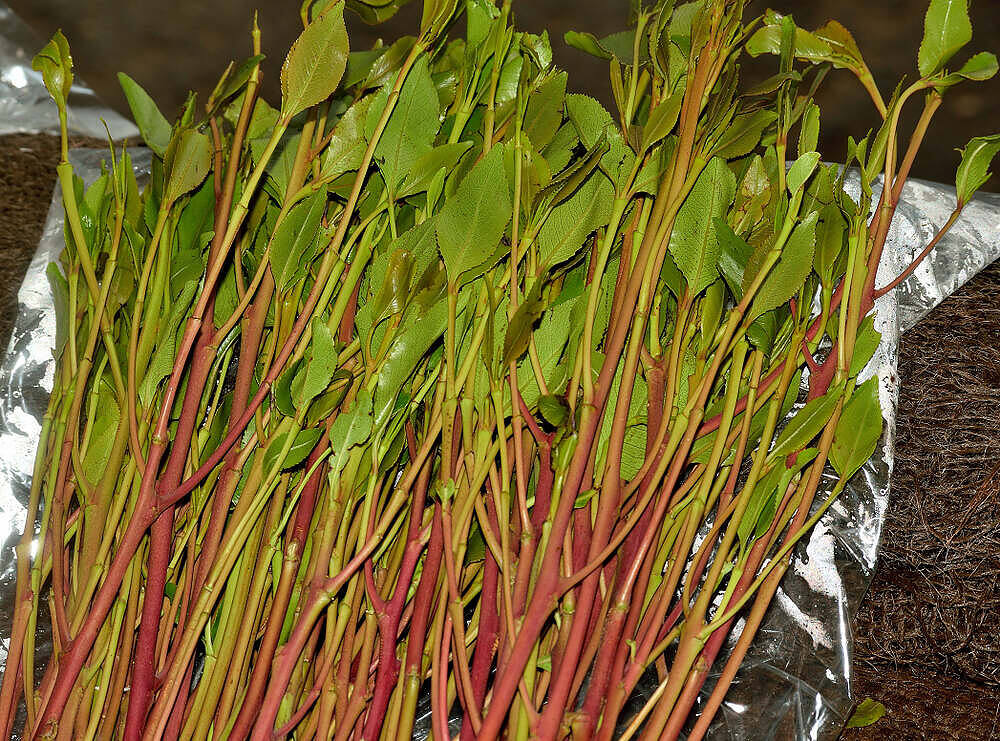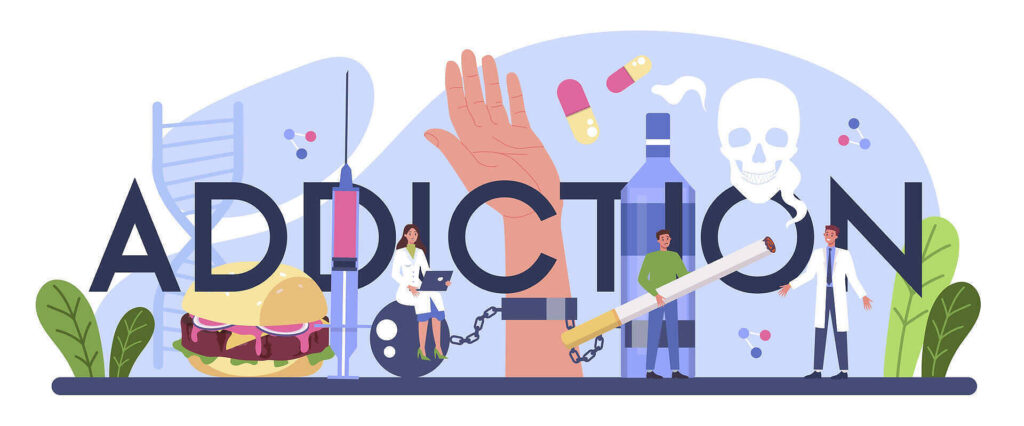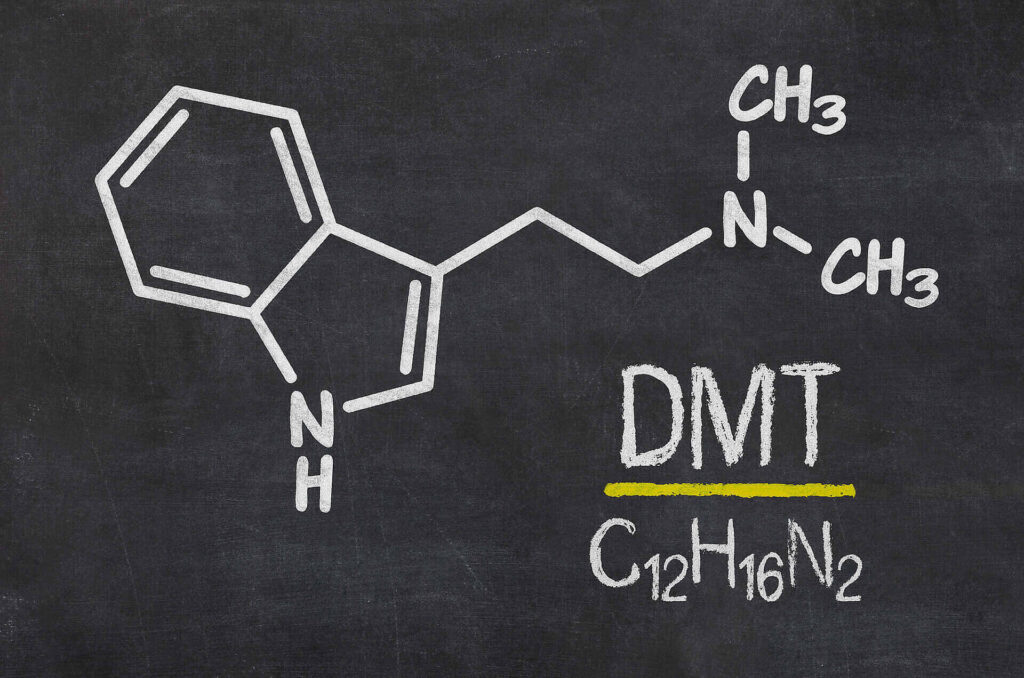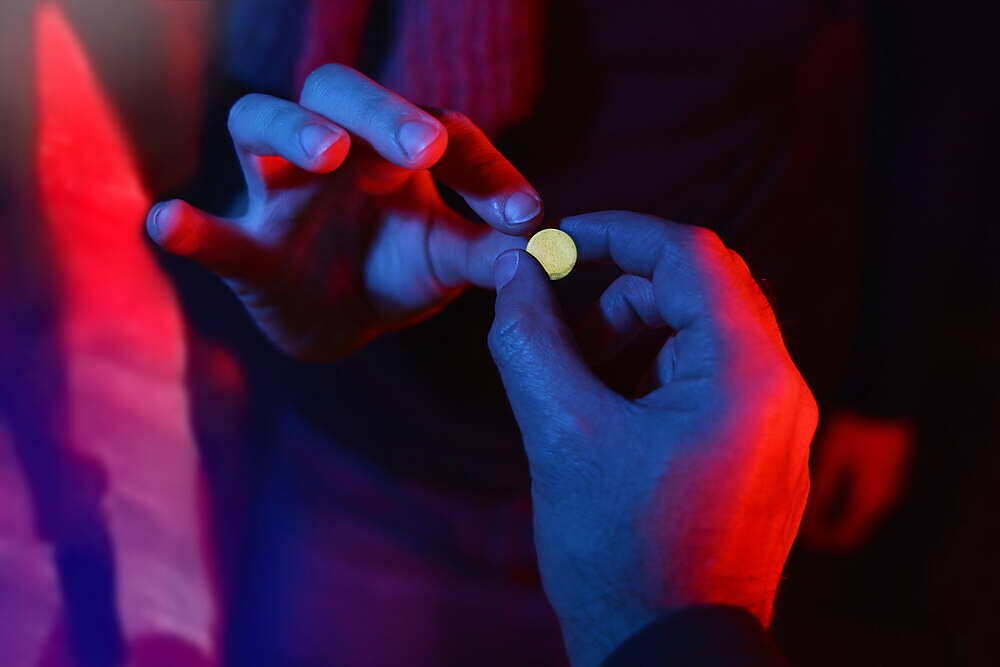Khat (Catha edulis) is a flowering evergreen plant that can be used for its stimulant-like effects.
The active ingredients in Khat are cathine and cathinone, which have similar effects to amphetamines and are both Class C controlled drugs in the UK.
Khat is commonly chewed to release the plants’ chemicals into the mouth. The leaves of the Khat plant can also be dried and added to a herbal smoking mixture to make Khat tea or added to food.

Khat is a drug that is brought into the United States and Europe from other countries where it is grown. It can also be found in some areas of London among immigrant communities.
In this article on Khat, we look at the drugs’ effects, risks and potential for addiction. We also advise on what to do if you or a loved one has a problem with khat addiction or abuse.
What is Khat used for?
Khat is used as a traditional medicine in Middle Eastern and East African countries like Somalia, Saudi Arabia, Ethiopia and Yemen and is abused for its stimulant effects. In these countries, chewing Khat is part of some of their social customs and is therefore seen as acceptable.
Users of Khat tend to feel energised and less hungry. Khat’s effects are also rumoured to help with depression, diabetes, muscle strength and fatigue. Although there is no scientific evidence to support any medicinal use of Khat.
Unfortunately, Khat abuse has also been associated with increased aggression, which is believed to have contributed to the civil war in Somalia, where Khat use is part of their social customs.
Studies conducted on students where Khat is native to their country found that students mainly used the drug to enhance their study performance. This is similar to the UK, where stimulant medications such as Adderall and Modafinil are abused as a study aid by university students.
Why People Use and Abuse Khat
Khat has been chewed for centuries in Ethiopia, and since then, it’s spread to other places in East Africa and South Africa. It’s also been used in Yemen as far back as the 6th Century.
People usually think of chewing Khat as a Muslim tradition, such as at religious ceremonies. Today, Khat is popular in areas of Europe, Asia, Australia and even the United States.
Originally, Khat abuse started with African immigrants who brought the drug into other countries, but lots of other people are now trying it. Khat chewing is becoming more popular all over the world, and its use is rapidly growing in Africa.
Participants in a study on Saudi Khat users said their reasons for using Khat were due to peer pressure, a desire to look grown up, availability, and little else to do. Like many addictions, many participants initiated Khat abuse during their teenage and developmental years and viewed the use of the drug as ‘normal’. Even when participants suffered physical, mental and social consequences, they continued to abuse Khat, citing boredom and social acceptance as the main reasons.
What Does Khat Do, And How Is It Used?
Chewing the leaves of the Khat plant releases the active ingredients into the mouth, which are then absorbed into the stomach and bloodstream.
Chewing Khat can make a person feel euphoric, with increased energy, focus and confidence. It is these effects, along with a reduced need to sleep or eat, that can make Khat very addictive psychologically.
Khat is also known to produce some negative effects in those that use it regularly, in particular, severe mood swings and damage to the gums, teeth and stomach lining. Khat is banned in the US, Canada and the UK. However, it is still legal in some European countries.
In order to minimise the harms associated with Khat abuse, users should take breaks in between chewing, eat good nutritious food and drink plenty of water. it is also important to get good quality rest. Chewing one bunch of Khat after another will only likely result in severe side effects associated with stimulant abuse, putting the user at greater risk of a heart attack.

Drug interactions with Khat
As with all drugs, and even alcohol, it is recommended that you do not combine them, as this can increase the effects of both drugs. In particular, mixing another stimulant drug or medication with Khat can increase the likelihood of high blood pressure and heart attack. Mixing stimulant drugs together is also likely to make you feel very jittery and anxious.
You should also be careful of over-the-counter drugs that use caffeine and other stimulant ingredients, as these can increase the effects of Khat on your central nervous system.
Medications for mental health illnesses may also be counteracted by the effects of Khat, including antidepressants and antipsychotics. Additionally, Khat can trigger mental health illnesses and make pre-existing conditions worse.
Drinking alcohol with Khat may lead you to drink more than you normally would, as stimulants counteract the effects of depressant substances, such as alcohol. You may find it harder to feel drunk when combining alcohol with Khat. Frequently mixing the two together could lead to alcohol dependence.
If you are taking blood thinners or medication to lower your blood pressure or for diabetes, Khat should be avoided as it may interfere with the absorption of these medications.
Khat’s Legal Status In The UK
Khat is a Class C drug in the UK, which means it is illegal to have for yourself, give away or sell.
Possession of Khat can result in up to 2 years in prison, an unlimited fine or both.
Supplying Khat to anyone else can result in up to 14 years in prison, an unlimited fine or both.
If you are caught drug driving whilst intoxicated by Khat, you are subject to the same penalties that drunk driving carries. This could be a driving ban, unlimited fine or a prison sentence.
Khat has been banned in the UK since July 2013. This measure was taken to prevent the UK from becoming addicted to Khat and to stop smuggling the drug to other countries.
In America and throughout most of Europe, Khat is classified in the same category as Cocaine and is illegal to possess, buy and sell. Cathinone, which is one of the two stimulant ingredients within Khat, is a Schedule I stimulant under the Controlled Substances Act.
Side Effects Of Khat
Khats’ effects are similar to other stimulants such as cocaine and methamphetamine but are less intense. Users of Khat will feel euphoric, excited, and more alert with a decreased need to sleep or eat. However, there are also some side effects that result from Khat abuse that are far less pleasurable.
Effects of Khat Abuse:
- Anxiety
- Aggression
- Changes in sex drive
- Depression
- Headaches
- Insomnia
- Increased blood pressure
- Increased heart rate
- Migraine
- Oral health problems
- Loss of appetite
- Paranoia
- Psychosis
- Stomach Ulcers
Khat abuse can also have some life-threatening side effects, including liver damage, bleeding in the brain, damage to the lungs, heart attack and seizures.
Using Khat is especially risky for those who are pregnant, have a history of drug or alcohol abuse, have cardiovascular problems, suffer from diabetes, have high blood pressure or have pre-existing mental health conditions.
What Khat Abuse Does To Your Teeth ‘Khat Mouth’
Catha edulis, commonly known as khat or qat, is a plant found in East Africa and southern Arabia. Millions of people around the world use the leaves and twigs of this small tree for their stimulating effects.

Studies have demonstrated that chewing khat long-term is associated with various oral and dental ailments, including keratotic white lesions, mucosal pigmentation, periodontal disease, tooth loss, plasma cell stomatitis and xerostomia. However, limited data exist regarding the prevalence of issues among khat users. Most studies that link Khat abuse with an increased risk of oral cancer are uncontrolled or based on individual case studies.
One thing is for sure, though, and that is that the long-term use of Khat is damaging to oral health when the plant is chewed. Chewing unwashed and damp leaves can also lead to infections, not only in the mouth but in the body also.
Is Khat Addictive?
As Khat has amphetamine-like effects, like any stimulant drug, when abused frequently, addiction can develop. Whilst Khat has a lower abuse potential than other drugs such as cocaine, opiates or alcohol, it can and still is abused.
When the effects of Khat wear off in a person, there is a come-down period. During a Khat come down, a person is likely to feel anxious, nervous, low in mood, unmotivated and lethargic. They are also likely to struggle to concentrate and sleep. These unpleasant feelings may well prompt them to use Khat again.
Whilst Khat is mainly associated with psychological addiction, the fact that frequent Khat users can develop withdrawal symptoms strongly suggests an element of physical dependence also.
Many people think that certain drugs, such as cocaine, cannabis and crystal meth, do not cause physical dependence. However, in those with addiction, the brain becomes tolerant to ever-increasing amounts of drugs.
Addiction also causes lasting changes in the brain’s pathways and reward system. Stopping a drug suddenly, where addiction or dependence is present, causes the brain to lose equilibrium, which causes withdrawal symptoms to develop.
WHO Recognise Khat Abuse Creates Dependence
The World Health Organization (WHO) lists khat as a drug that creates “dependence” in people who frequently abuse it. When drug dependence on Khat has formed, a person will need to continue to take a baseline amount just in order to avoid withdrawal symptoms.
Withdrawal from Khat abuse dependence can be very unpleasant, and where addiction is present, there is an extremely high risk of relapse.
Medical detox involves administering approved pharmaceutical medications that diminish the severity of Khat’s withdrawal symptoms dramatically. They also help a person to physically and mentally recover whilst detoxifying.
Khat withdrawal symptoms can range from mild to severe, depending on how frequently you use the substance and how long you have been using it. Chronic abuse of Khat results in the most severe mental and physical symptoms of withdrawal.
Khat Withdrawal Symptoms:
- Anxiety
- Agitation
- Aches and pains
- Brain fog
- Dysphoria
- Depression
- Changes in appetite
- Stomach upset
- Confusion
- Irritability
- Insomnia
- Sweating
- Tremors
- Nightmares
- Fever
- Strong Khat cravings
Khat addiction is characterized by a distinct loss of control around one’s drug use that results in negative consequences to a person’s mental, social, occupational or physical health. Yet despite these consequences, due to the changes that take place in the brain, a person with an addiction will struggle to stop using Khat for good.
Khat Abuse and Addiction
Whilst Khat abuse and addiction may not be that common in the UK, it is prevalent in many other countries.
Addiction isn’t as simple as stopping the problematic substance. It runs far deeper than that and is considered a medical brain disorder, often accompanied by other mental health issues that require treatment.
As a leading authority on detox and rehab treatment, we fully understand the complexities of treating addiction comprehensively enough to sustain long-term recovery. We use traditional evidence-based treatments combined with cutting-edge, proven holistic treatments to treat you physically, emotionally, mentally and socially.
All of your treatment within our detox and rehab centres will be fully supervised and delivered by a team of multidisciplinary medical and addiction treatment professionals.
We have access to the best CQC-registered rehabs in the UK and overseas and can provide you with a bespoke treatment package specifically designed to meet your individual treatment requirements. Furthermore, we will ensure that you are supported during your life after rehab and that you have access to aftercare.
For an informal chat about how we can help you or a loved one recover from Khat abuse or addiction, please call our team of friendly addiction experts today.
References:
- Prevalence, withdrawal symptoms and associated factors of khat chewing among students at Jimma University in Ethiopia
- Why Would Khat Chewers Quit? An In-Depth, Qualitative Study on Saudi Khat Quitters
- Drug Science. Cathinone (khat) 2022 cited: September 2022]
- Khat fact sheet
- Drug Fact Sheet: What is Khat?
- Influence of Khat Chewing on Periodontal Tissues and Oral Hygiene Status among Yemenis
- Development of a rational scale to assess the harm of drugs of potential misuse



